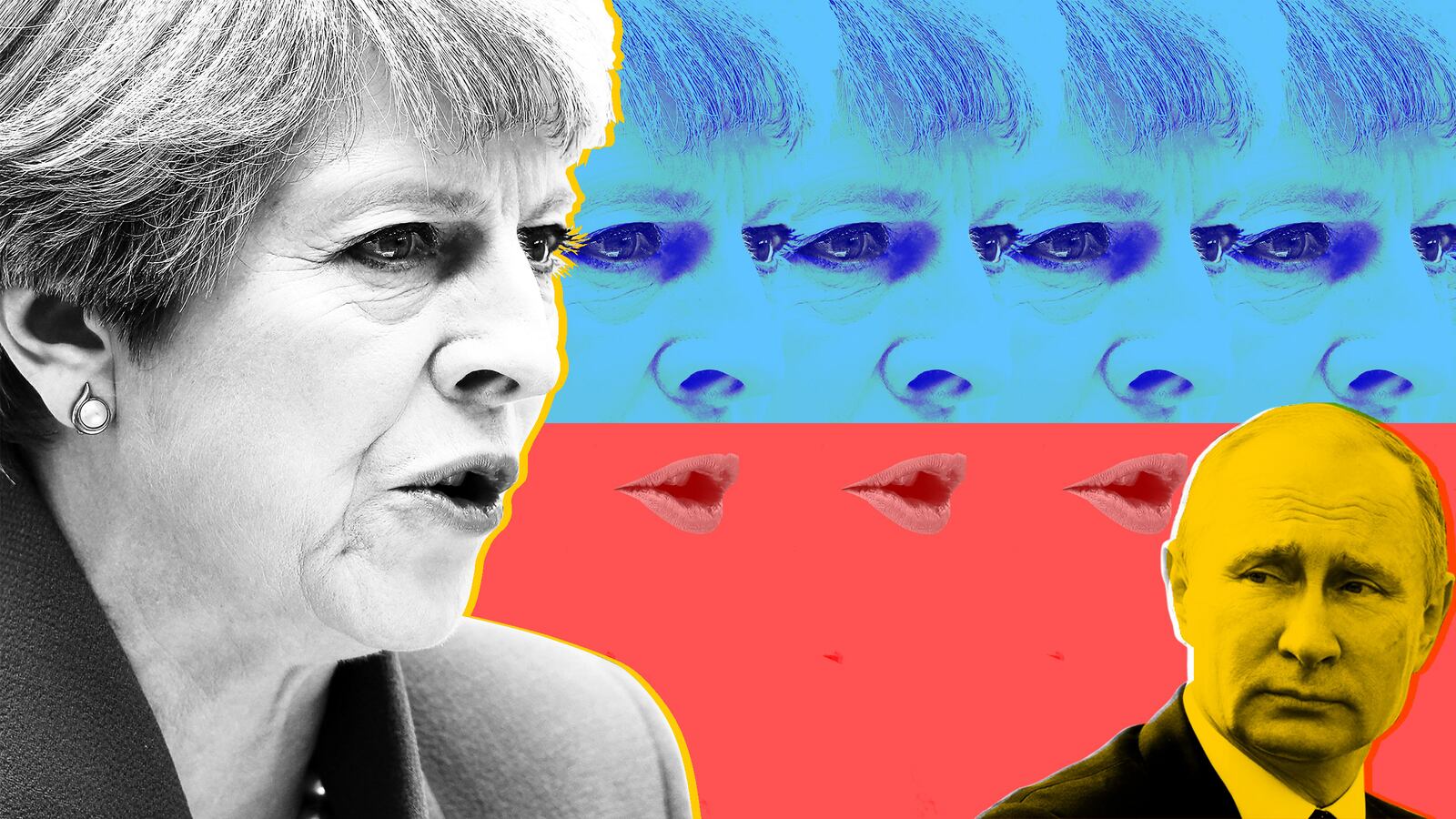LONDON—For a country its size, Britain has a unique grip on some of Russia’s most sensitive assets.
From Mayfair townhouses to London’s great soccer clubs, a tidal wave of rubles has flooded into the country ready for conversion into respectable Western assets worth billions of pounds sterling. If the Prime Minister Theresa May really wanted to strike back at Vladimir Putin’s kleptocratic empire in response to the release of a notorious Soviet nerve agent in a British city, she’d have gone after the money.
Instead, May focused on the headline figure of 23 expelled Russian agents. That will undoubtedly inconvenience Russia’s espionage network but there are plenty more FSB and SVR agents ready to replace those who were given seven days to pack their bags and get back to Moscow.
Britain says it is standing up against Russia’s lawless gangster state, but it remains willing to help launder the proceeds of an oligarchic criminal enterprise working to steal billions from its own people.
Prime Minister May stood up in the House of Commons on Wednesday to outline the nation’s response to the second known act of state-sponsored terrorism by Russia against British citizens on British soil since the turn of the century.
Just as she had done after the radioactive polonium attack on Alexander Litvinenko—when she was Home Secretary overseeing British security and she blocked a public inquiry—May came up short.
On Wednesday, she pledged to expel those 23 Russian spies—who are working under diplomatic cover—and to suspend high-level contacts with Russian officials, including a partial boycott of the FIFA World Cup in Russia this summer. That would mean government ministers and members of the royal family skipped the event while the England team would still compete. To be fair, pulling out of the cup would be an act of domestic political suicide for a prime minister.
May has also now signalled that she will endorse a British version of the U.S. Magnitsky Act, which sanctions listed individuals accused of corruption. The prime minister made it clear, however, that Britain would only act against Russian assets when “we have the evidence that they may be used to threaten the life or property of U.K. nationals or residents.”
Roman Borisovich, an anti-corruption campaigner and vocal critic of Putin, said May had blown her chance to show that Britain was serious.
“Unfortunately it’s totally predictable and absolutely ineffective,” he told The Daily Beast. “This will embolden the corrupt Russian elite; they think they own England now.”
They certainly own great swathes of it. Oligarchs great and small have snapped up huge estates in the British countryside, grand houses in London as well as some of the city’s most cherished symbols, including Chelsea football club and the leading local newspaper, the London Evening Standard.
Opposition leader Alexei Navalny told ABC News he wanted to see economic sanctions and asset freezes first applied against three Kremlin allies with property in London; Alisher Usmanov, who owns a minority stake in Arsenal football club, Roman Abramovich who owns Chelsea outright, and First Deputy Prime Minister of Russia Igor Shuvalov, whom Navalny claims is the owner of an $18 million penthouse apartment in central London—an impressive vacation home for a man whose government salary is reportedly $159,000 a year.
“London properties really are a who’s who of the Kremlin,” said Borisovich. “The government doesn’t want to endanger the economic relationship with Russia. They have announced these political snubs, but the money they want to preserve.”
May did signal that she might finally support the passage of a Magnitsky amendment that would strengthen powers to freeze the assets of corrupt individuals, and that would be a significant breakthrough despite her reluctance to use it widely against Putin’s allies.
The amendment is named after Sergei Magnitsky, a Russian lawyer who uncovered a $230 million fraud by the Russian state. He was subsequently arrested, beaten, and left to die in a jail cell.
Magnitsky’s client at the time, Bill Browder, has since campaigned for the introduction of these anti-corruption laws all over the world, much to the anger of Putin. Overturning the U.S. version of the act was discussed in the infamous Trump Tower summit between Russian emissaries and Jared Kushner, Paul Manafort, and Don Jr.
Browder said Britain was in a powerful position to impose real consequences on senior Russian allies of Putin. “The fact that they all come to the U.K.; send their kids to school in the U.K.; have white stucco houses on Belgrave Square means that we have huge leverage under the Magnitsky Act,” Browder told The Daily Beast.
“After it was determined that the FSB had killed Alexander Litvinenko, there was no reaction,” he said. “And because of this inadequate response there will be more Russian murders on British soil.
“They should identify members of Putin's regime—either official members in terms of government officials who have property through their relatives—or oligarchs who are financially entangled with the Putin regime, and freeze their assets.”
The Russians racing to secure their wealth in overseas safe havens are able to take advantage of Britain’s opaque property and company ownership regulations which allow the beneficial owner of assets to be hidden behind anonymous offshore companies.
After decades of campaigning to stop criminals and corrupt politicians hiding their proceeds in plain sight, Britain introduced new “unexplained wealth orders” in January. Although still in their infancy they would allow law enforcement to require proof of a property’s real ownership and an explanation of how it was purchased using lawful income.
Margaret Hodge, a politician who has campaigned for years for greater transparency, beseeched May today to do more to clean up Russia’s dirty money. She said we need to know “where the money comes from and deal with it if it’s illicit money brought in by unsavoury people.”
If May is afraid to go after the unsavory Russians with millions stashed in Britain, Putin will continue to believe he can get away with murder.





